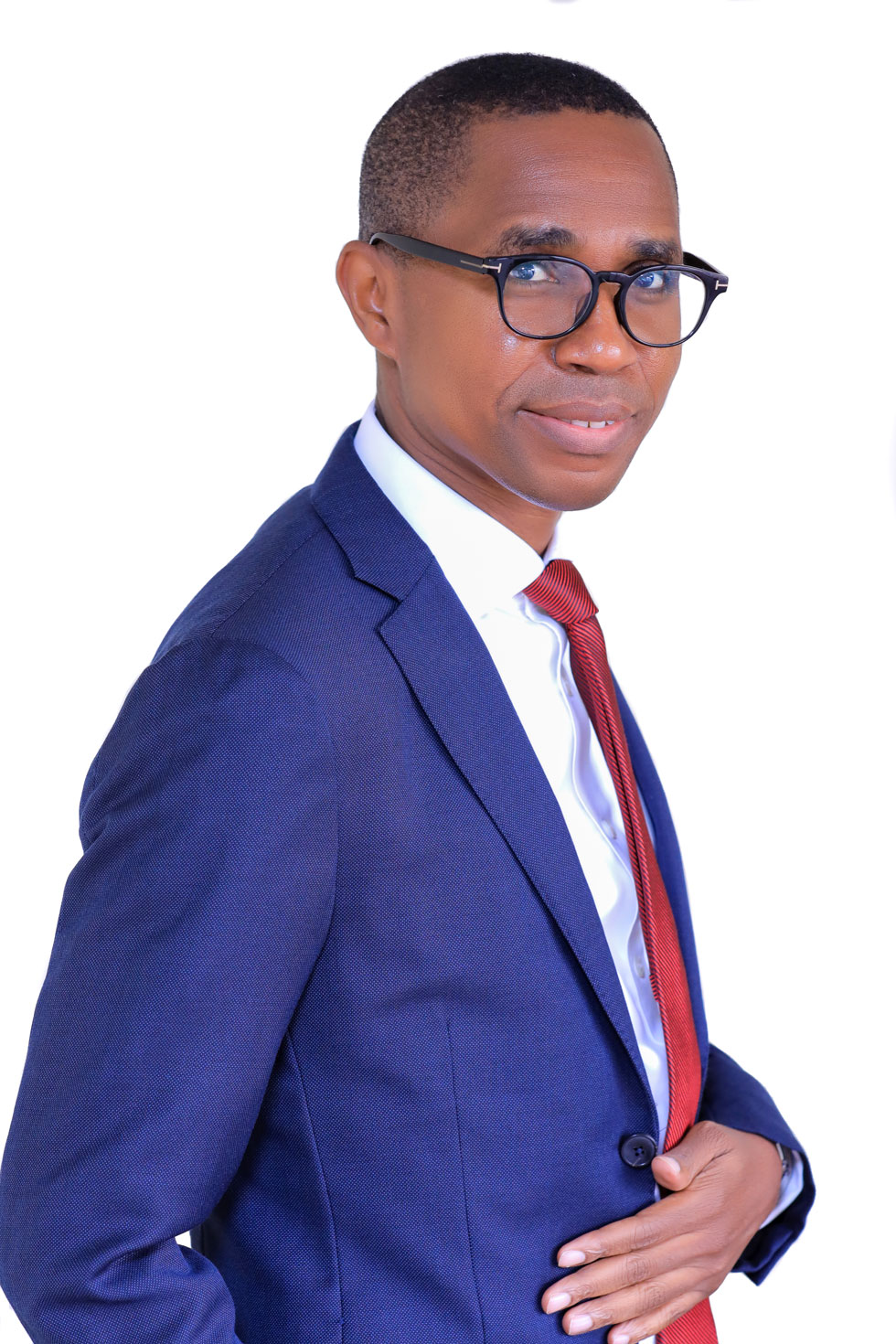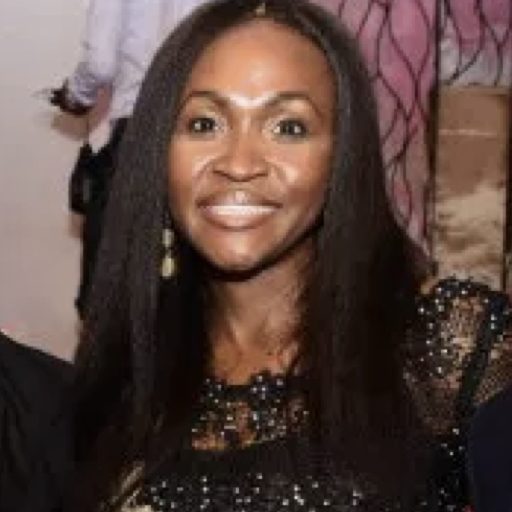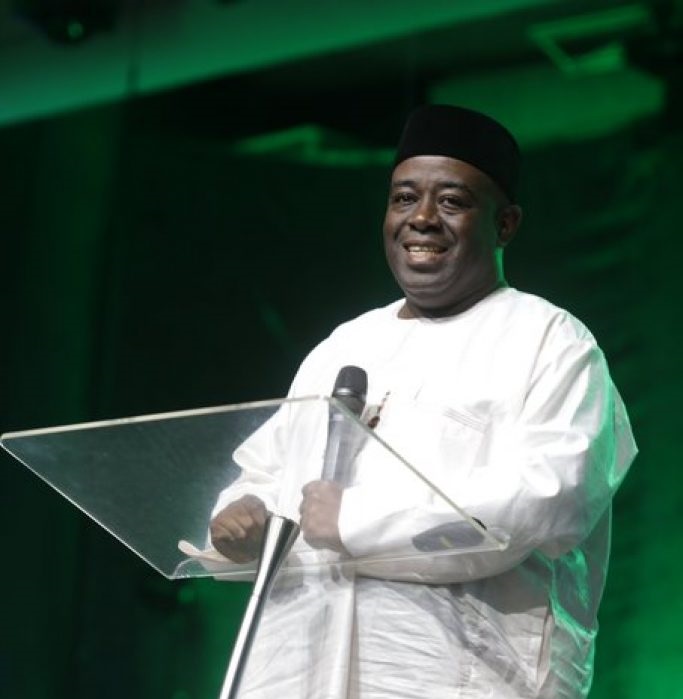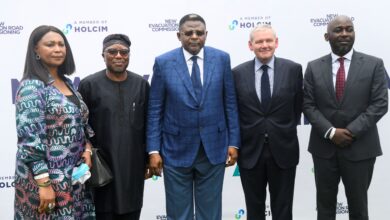Succeeding Well: LBS Event on Building Businesses that Outlive Founders

With only about 30% of family businesses successfully transitioning into the second generation and 10% into the third, there is an alarming need for further education on business sustainability.
Wednesday, the 27th of May 2020 witnessed a truly insightful webinar titled: Managing the Business to Last Beyond the Founders – The Building Blocks of Sustainable Family Businesses. The event was organised by Dr. Okey Nwuke, Non-Executive Director at Access Bank Plc and the Coordinator of the Family Business Module at the prestigious Lagos Business School (LBS).
Four prominent leaders of family-owned businesses across different generations in Nigeria were hosted. In attendance was Cosmas Maduka, Founder, President and Chairman of Coscharis Group (First Generation); Rasheed Sarumi, CEO and Group Managing Director of Saroafrica International Ltd (In-Transition from the First Generation); Uzoma Ezeoke, Executive Director of Emzor Pharmaceutical Industries Ltd. (Second Generation); and, M.D Abubakar, CEO and Managing Director of L&Z Integrated Farms Nigeria Ltd. (First Generation). The event was also widely attended by current and aspiring businessmen and women interested in effectively setting up and managing a family business amongst other interested parties.
As explained by Dr. Nwuke, family businesses are business entities which have individuals related through marriage or lineage owning high stakes, and are in management control, over the business. In Nigeria, family businesses form 80-90% of registered businesses, contribute to 50-70% of the GDP and inherently outperform non-family businesses. This strongly indicates that family businesses are an integral part of the business economy. Yet, most family businesses fall as hard as they rise, and a few successfully transition into the next generation.
With only about 30% of family businesses successfully transitioning into the second generation and 10% into the third, there is an alarming need for further education on business sustainability. Although businesses also fail for various reasons, research has shown that the fall of most family businesses usually coincides with the exit of its founder. Such examples highlighted by Dr. Nwuke were Ekene Dili Chukwu Transport Company and MKO Abiola Group of Companies, to name a few. The floor was then given to the speakers to give the audience insight into the strategies and principles set in place to ensure the sustainability of their businesses.
Cosmas Maduka (First Generation)

The first speaker was Mr. Cosmas Maduka, a business magnate, philanthropist and Founder/CEO of Coscharis Group. Mr. Maduka grew from a one-man business as Coscharis Motors, to now Coscharis Group, an international business empire cutting across various integral sectors in Nigeria and Africa.
Recollecting the journey from the inception of Coscharis Group, Mr. Maduka explains that the vision for its destination was fairly certain, but its route was not. The foundation of the success of his vision was built on three things: a clear vison, faith in his vision, and, the courage to take action and calculated risks. Acknowledging that no business can operate as an island, he emphasizes the necessity to actively cultivate the right team and to also engage experts who will challenge one’s thinking. Likewise, discipline, dogged determination and a willingness to be misunderstood are some other essentials for growth and sustenance.
The Igbo business culture of apprenticeship propagated the rise of many businesses. However, Mr Maduka recognised that it was inherently flawed at its start. Apprentices were trained almost entirely as successors, but they would often leave the business to start their own. The primary business was thereby left without a formidable successor and would subsequently fail. Aiming to transcend this pattern of failed transitions, Mr Maduka expresses that his vision was supported by a strong business structure. The structure was also rooted in the values of trust, continuous learning, development and innovation which are instilled in the DNA of the Coscharis empire.
Rasheed Sarumi (In Transition)

Mr. Rasheed Sarumi – a polished and astute entrepreneur, pioneer Managing Director of Saro AgroSciences Ltd from its inception in 1991 until 2010, now CEO and Group Managing Director of Saroafrica International Ltd – was the second presenter to address the listening audience.
According to Mr. Sarumi, his business was created with a very clear intention – to build a “successful business of successful people.” He explained that building a family business was not the initial idea of Saroafrica. It was simply to be a professional organization. In 2010, the idea of turning the business into a family business began to take root in him and he subsequently embraced it. Soon after, Mr. Sarumi revealed that he began grooming his niece to succeed him after his retirement.
From his perspective, entrepreneurship is a relentless pursuit of one’s passion, not a reckless one. Whilst in pursuit, having a forward-looking mindset as well as a thirst and propensity for innovation would guide the sustainability of the business. As failures are encountered, they should be treated as gifts and opportunities for improvement. These beliefs have enabled Saroafrica stand today as a leader in Agrobusiness.
Uzoma Ezeoke (Second Generation)

Next, the only woman on the panel, Mrs Uzoma Ezeoke; a seasoned pharmacist with a wealth of experience working for various multinational pharmaceutical organizations both in the UK and the US, Co-Founder of Emerald Lake Inc. in Las Vegas, Nevada and the Executive Director of Emzor Pharmaceutical Industries Ltd.
As one may expect, Mrs. Ezeoke confirmed that taking the leadership baton from her mother, the Founder, CEO and Managing Director of Emzor Pharmaceuticals, was no small feat. It required a lot of mental strength, she said. Under her management, Emzor Pharmaceuticals forms a part of the 30% of businesses that successfully transition to the second generation. In this case, the saying “you are not successful until your successor succeeds”, drove the need for a successful transition and integration of the next-generation successor. Since taking the reins, she regularly asks herself, “Is there not a cause?” Is there not an utterly valid reason? Isn’t this worth fighting for? These questions have guided her in and to her current position.
For a successful transition, Mrs. Ezeoke emphasized how important teamwork and synergy are. She relates it to running a relay race, the baton – the vision, cannot be passed on to someone who is not running with you, seeing what you are seeing. The baton should not be handed over to someone who only watched you play; it is imperative that you both play together in the same team. Incorporating diverse skills and attributes will strengthen every team.
When grooming a successor, she believes it is the responsibility of the founder(s) to be more accommodating of any personal differences they may have with the successor. The person of choice must be properly appraised on whether or not they have the mental and psychological capacity, willingness and drive to take up the position. Putting pressure on family members or relatives to step up and contribute to the business can be daunting for any individual. If they do not possess the same energy as the founder(s), it can become a struggle to keep up.
She further explained that when choosing a successor, the popular choice is usually a person similar to the founder, although, this may not always be the best choice. She maintains that the strengths and gifts of the children should be weighed against a realistic expectation. Likewise, if the necessary values, skills, and qualities are not first instilled in the children, a different output should not be expected of them. However, she continued by saying that people should not strictly be relegated to the position they started from. Confidence is often built over time, and the successor would need that time. So, she believes that the onus is on the founder(s) to build successors up. As for the successors, they may need a special “anointing to sustain the legacy”.
M.D Abubakar (First Generation)

Lastly, M.D Abubakar, a pioneer of multiple government agricultural projects, member of numerous Federal and State Government Committees on repositioning and financing of the Agricultural sector, CEO and Managing Director of L&Z Integrated Farms Nigeria Ltd., delivered the final contribution.
Adding to the list of values needed in business and most certainly in the agri-business, Alhaji Abubakar highlighted that one also needs a spirit of adventure and a willingness to learn new things. This is what enabled him to leave his corporate bank job to follow the footsteps of his grandparents who were herdsmen and start a dairy farm.
He began grooming his desire for livestock rearing upon relocation to the North from Lagos State. Whilst contemplating starting off his venture, he recounted how Mr. Akinwumi Adesina, President of the African Development Bank, encouraged individuals to leave the banking sector to pursue livestock farming. This came as a major encouragement to him. After travelling abroad and witnessing how other dairy farms were successfully run, he went on to convince his two wives to join in the venture. All three co-founders split responsibilities in the creation of their dream. The initials “L&Z” in the company name was coined from a fusion of the initials of his two wives. This was to solidify the integration of the family into the business.
Duly giving credit to the financial and non-financial investments from FAFIN (Funds for Agriculture Finance in Nigeria), L&Z Integrated Farms was able to develop a strong corporate outlook. Once the business was established, Alhaji Abubakar was excited to share it with his children, but they were reluctant to join in at the time. Nonetheless, he encouraged his children to pursue their own dreams while he did the same.
Irrespective of his children’s choices, the business is built to have a strong and independent structure that can stand on its own feet. Children should have their own dreams, he said, but it is also good to share the vision of the business with them. They should be given the choice not to participate if they so desire. However, if they choose to join, Alhaji Abubakar believes they should also demonstrate competence to earn their place in the business like everyone else.
In his final remarks, Dr. Nwuke highlighted that the contributions shared, and the questions asked, indicated the need for further education on the topic. Recognising the high mortality of African businesses, the Lagos Business School, spearheaded by Dr. Nwuke, plans to educate businessmen and women, through a series of future events, on factors to consider and implement when building, growing and transitioning a family business from one generation to the next while ensuring its sustainability.







